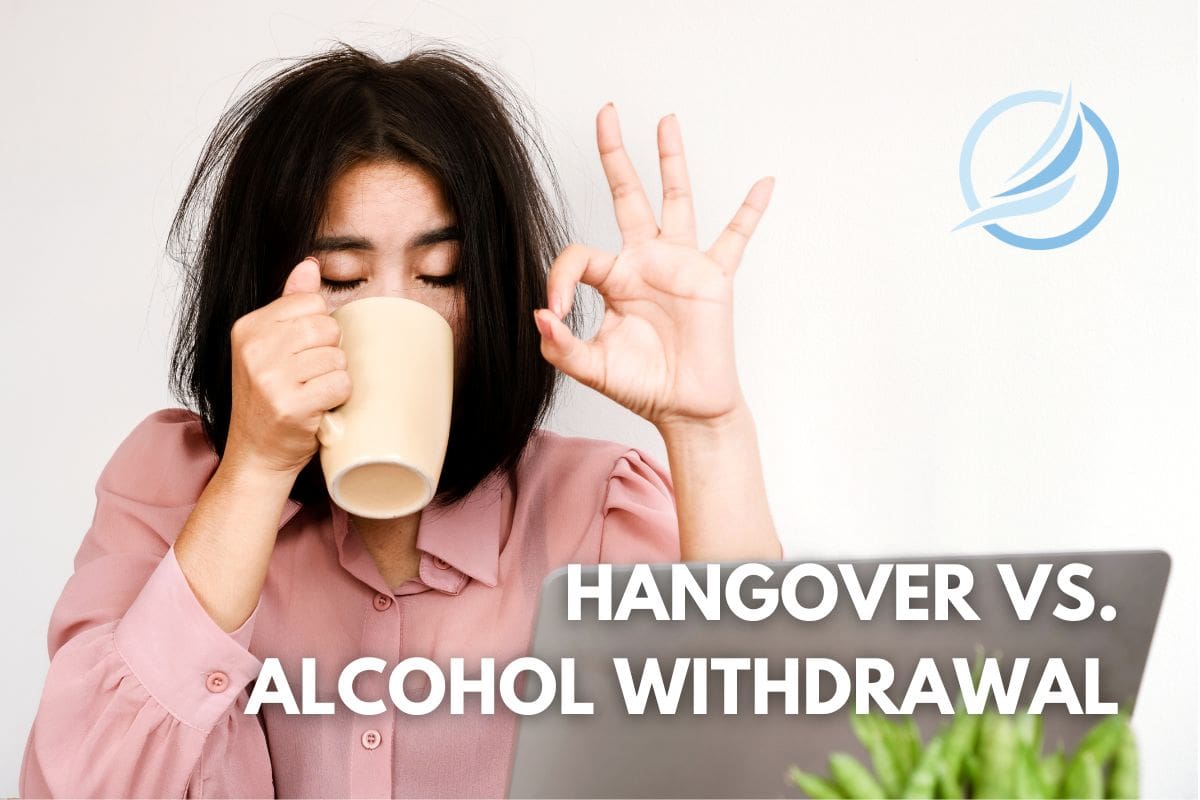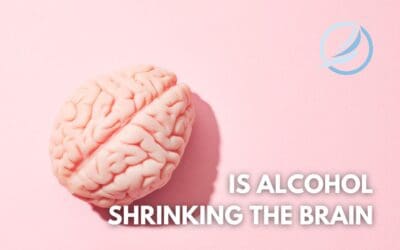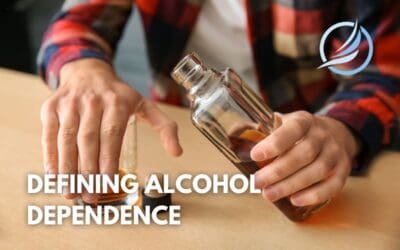For many people, the line between a hangover and alcohol withdrawal can be blurry. After a night of heavy drinking, the symptoms of a hangover—headaches, nausea, and fatigue—can seem overwhelming. But for those struggling with alcohol use disorders, these symptoms could indicate something far more serious: alcohol withdrawal. Knowing the difference can help you or a loved one seek the appropriate treatment before the situation escalates.
Hangover vs. Alcohol Withdrawal
Distinguishing between a hangover and alcohol withdrawal is crucial, especially for individuals who regularly consume alcohol. While hangovers are uncomfortable, alcohol withdrawal can be life-threatening if not addressed properly.
Definition
Hangover: A hangover refers to the set of unpleasant physical and mental symptoms that occur after drinking alcohol, usually the morning after binge drinking or consuming large amounts. It’s your body’s reaction to the toxins and dehydration caused by excessive alcohol consumption.
Alcohol Withdrawal: Alcohol withdrawal is a serious medical condition that occurs when a person who is physically dependent on alcohol suddenly reduces or stops drinking altogether. This happens because the central nervous system becomes reliant on alcohol to function, and when alcohol is abruptly removed, the body struggles to adjust.
Common Symptoms
Hangover: Hangover symptoms can vary depending on how much you drink, your body’s tolerance, and other factors. The most common symptoms include:
- Headaches
- Nausea
- Fatigue
- Dizziness
- Dehydration
- Sensitivity to light and sound
- Weakness
Alcohol Withdrawal: Alcohol withdrawal symptoms can range from mild to severe, depending on the level of dependence. These symptoms typically start within 6 to 24 hours after the last drink and can escalate quickly. Common symptoms include:
- Anxiety and irritability
- Tremors (shaking)
- Sweating
- Nausea and vomiting
- Insomnia
- Elevated heart rate and high blood pressure
- Seizures (in severe cases)
- Delirium tremens (DTs) — characterized by confusion, hallucinations, and even life-threatening seizures
Causes
Hangover: Hangovers are caused by several factors. Dehydration is one of the main culprits—alcohol is a diuretic, meaning it increases urination and leads to a loss of essential fluids.
Additionally, when your liver breaks down alcohol, it produces acetaldehyde, a toxic byproduct that contributes to nausea and other symptoms. Alcohol also disrupts your sleep cycle, preventing you from getting restorative rest, which leaves you feeling exhausted the next day.
Alcohol Withdrawal: Alcohol withdrawal occurs because of the physical dependence that develops in the brain and body over time. Regular, heavy drinking alters brain chemistry, making the central nervous system dependent on alcohol to maintain a sense of balance.
When someone with an alcohol use disorder suddenly stops drinking, the body’s inability to compensate for the absence of alcohol triggers withdrawal symptoms, which can be both physically and psychologically distressing.
Key Differences Between a Hangover and Alcohol Withdrawal
While both a hangover and alcohol withdrawal stem from consuming alcohol, they are vastly different experiences with distinct causes and levels of severity.
Timing
The timing of symptoms is one of the most noticeable differences between a hangover and alcohol withdrawal. Hangover symptoms typically begin the morning after consuming alcohol, usually peaking once blood alcohol levels drop. In contrast, alcohol withdrawal symptoms can start as early as 6 to 24 hours after the last drink, especially for individuals who drink alcohol regularly or heavily.
Duration
Hangovers generally resolve within 24 hours, often fading as the body processes the remaining alcohol and rehydrates. On the other hand, alcohol withdrawal symptoms can last for several days or even weeks, depending on the severity of the dependence. In moderate alcohol withdrawal cases, symptoms like anxiety and tremors can persist, while more severe symptoms, such as seizures and delirium tremens (DTs), may develop within 12 to 48 hours.
Severity
Though uncomfortable, hangovers are usually non-life-threatening and often relieved with hydration and rest. Alcohol withdrawal, however, can be dangerous, even life-threatening, particularly if severe symptoms like withdrawal seizures or delirium tremens occur. Anyone experiencing severe alcohol withdrawal should seek immediate medical attention, and in cases of seizures or DTs, it’s critical to call 911.
Physical Dependence
A hangover does not indicate a physical alcohol dependence. It’s a temporary reaction to overconsumption. Alcohol withdrawal, however, is a clear sign of dependence. It occurs when the body becomes so accustomed to alcohol that it can no longer function normally without it. If you experience alcohol withdrawal symptoms, it may be a sign that you have developed an alcohol use disorder and should consider seeking professional help.
When to Seek Help
Knowing when to seek help is crucial for anyone experiencing symptoms of alcohol withdrawal. If your symptoms go beyond the typical mild symptoms of a hangover—such as nausea, headaches, or dehydration—and include more severe signs like tremors, increased heart rate, excessive sweating, or confusion, you may be experiencing alcohol withdrawal.
It’s important to note that alcohol withdrawal can escalate quickly, with symptoms like seizures or delirium tremens posing a serious risk. If you or someone you know is at risk, it’s vital to call 911 or seek emergency care immediately.
Professional Treatment for Alcohol Withdrawal
If you suspect that you are experiencing alcohol withdrawal syndrome or if you find it difficult to stop drinking, professional treatment is the safest and most effective way to manage these symptoms. A medically supervised alcohol detox program can help reduce the intensity of symptoms and prevent life-threatening complications. Medications, such as beta-blockers, can manage high blood pressure and reduce the body’s stress response during withdrawal.
If you’re struggling with alcohol dependence, The Freedom Center offers comprehensive support, including detox programs, counseling, and rehabilitation services tailored to individuals with alcohol use disorders. Contact us for more information on the resources available to help you regain control and start healing.

































